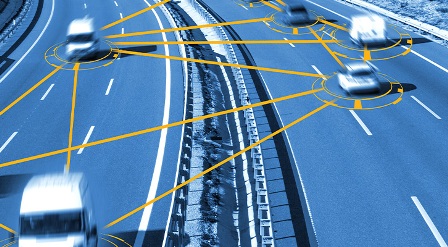ROTIMI ASHER
Over the years, the automotive industry has been a major industrial and economic force in several economies all over the world.
As regard production of electric vehicles (EVs), The contributions of the industry to GDP of various countries have grown steadily throughout its history.
Called the “industry of industries,’’ the automotive industry has made a significant contribution to growth, development and the global economy worldwide. Its annual turnover is equivalent to the size of the sixth largest economy in the world.
Most importantly, the rate at which the industry is churning out innovations in recent years is heartwarming. In 2022 alone, it has developed many innovations which are eco-friendly. Though, there are many more innovations which have really shown that the industry is key knowledge driver but for the purpose of brevity, we will examine top ten of these innovations in 2022.
Autonomous Vehicles (AVs)
This innovation also called self-driving is poised to transform everyday transportation as it minimizes the need for human drivers. With advanced recognition technologies, such as Al-enhanced computer vision to identify obstacles along the route, it has the capability to reduce accidents caused by driver fatigue or negligence.
Vehicle Connectivity Solutions
For easy tracking of vehicular data for various use cases such as insurance, driver safety, predictive maintenance and fleet management, vehicles now come with a tamper-proof digital identity that differentiates them from other vehicles in the network. Sharing vehicular data helps not just the individual customer but overhauls the entire mobility system. Vehicle Connectivity Solutions enable connectivity and exchange of data with other vehicles (V2V), an electric vehicle grid (V2G), public infrastructure (V2I), as well as with new and emerging ways to utilize vehicle data (V2X). V2X Network offers a vehicle-to-everything (V2X) platform for autonomous transactions that combines geo-networking and caching to enable low latency rel-time communication.
Electrification
Due to the depleting fossil fuel reserves and the harm caused to the environment, there is the need for electric mobility solutions for EVs to address issues such as increasing greenhouse gas emission across the world, high price, poor battery, inadequate charging infrastructure, fleet electrification, as well as powering renewable energy-based charging grids. Startups are working on electrification solutions to deal with these challenges.
For instance, the US-based Startup, Lordstown Motors Corps makes an all-electric pickup truck. The truck,Endurance TM which is designed to be a sturdy work vehicle, comes with fewer moving parts compared to traditional commercial vehicles, enabling easier maintenance while German startup, ChargeX offers a modular EV charging solution that converts parking spaces into charging stations.
Shared Mobility
With connected vehicles, new business models have come up that focus on shared mobility as an alternative to traditional vehicle ownership. This enables mobility as-a-service (Maas) and discourages unused vehicles. Such solutions meet the requirements of a city or a business without new vehicles, thus reducing waiting time for fleets and pollution caused by petrol or diesel vehicles.
Artificial Intelligence
Within the automotive industry, Artificial Intelligence Technologies such as machine, deep learning and computer vision has its application in robotic automation. These guide self-driving cars, manage fleets, assist drivers to improve safety and improve services such as vehicle inspection or insurance. It also has its applications in automotive manufacturing, where it accelerates the rate of production and reduces costs.
Big Data & Analytics
The age of big data and advanced analytics informs various decisions throughout the lifecycle of a vehicle. Data gathered from vehicles enables predictive maintenance, informs managers about their fleets and alert concerned authorities in case of accidents. In addition, customer automotive data finds applications in driving sales, optimizing supply chains and enhancing product design for newer vehicles. Startups and emerging companies develop big data solutions to help automotive manufacturers, as well as ancillary industries, streamline their operations to maximize their margins.
Human-Machine Interfaces (HMI)
Human-Machine Interfaces use voice-based or hepatic feedback to operate vehicles. These expand the scope of how and what aspects of a car that users control. Consequently, such interfaces make the driving experience safer and more enjoyable. Another form of HMI includes smart virtual assistants which help drivers and riders interact with vehicles and other service providers.
Blockchain
Blockchain enables multiple applications in the automotive industry. These include sharing vehicle data over a secure network for connectivity and shared mobility solutions such as ride-hailing, urban transportation, and deliveries. Moreover, blockchain finds application in verifying the supply chain of spare parts or making sure that the raw materials and spare parts are sourced exclusively from legal and trusted sources.
3D Printing
3D printing helps the automotive industry in three primary ways. Firstly, it enables rapid prototyping with 3D printed models that accelerate the design and testing phases of production. Secondly, it allows manufacturers to print spare parts to match their requirements. Lastly, additive manufacturing of composite materials leads to automotive parts that are lighter, stronger and more durable.
Internet of Things
IoT enables secure communication between vehicles as well as vehicles and infrastructure components. The technology improves road safety, solves traffic congestion and reduces pollution and energy expenditure with better fleet management. Startups and emerging companies develop advanced sensing technologies to gather more data about the vehicle as well as allow the vehicle to understand its surroundings. The technology also automates payments for fuel and tolls.
As we look forward to more environmental friendly innovations in 2023, the auto industry is poised to witness more innovative revolution.
©Copyright MOTORING WORLD INTERNATIONAL. All rights reserved. Materials, photographs, illustrations and other digital content on this website, may not be reproduced, published, broadcast, rewritten or redistributed in whole or in part without prior written permission from Motoring World International
Contact: [email protected]





